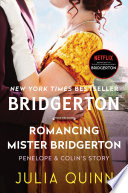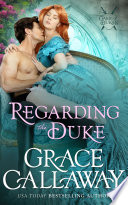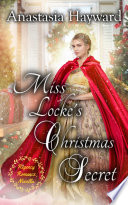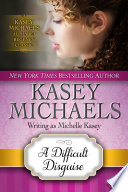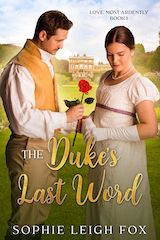
Originally released as a Signet and now released by Camel Press, Miss Milton Speaks Her Mind is…well…odd.
Its not earth shattering different or outside the formula of trad. Reg Rom (or Victorian Romance as the case is). In fact, its probably a little closer to Austen than most in terms of pacing, romance and storyline. However, its just so darn gothic. I kept stopping myself during the reading to double check it was a Carla Kelly. Surely I had mistakenly read the author name and in reality I was reading some devotee of Bronte.
Miss Milton is a little mopey, maudlin and missish. There is a very tearful, emotional heroine. For those of you who detest the weepy young women, you have been warned. Yes, her character arc includes actually learning to speak her mind and stand up for herself, which actually creates a wonderful, tear-jerking ending. But along the way, I admit I was a little impatient with her.
The hero, who makes a gradual entry and is very atypical of Reg Rom was actually appealing to me in that Captain Wentworth sort of way—quiet, tortured and everything that is gentlemanly but needless to say this isn’t a Darcy or rakish hero. (Side note, his name is Butterworth not Butterfield as the synopsis says. Which is strange, since I lifted the copy directly from Carla Kelly’s website.) It not at all obvious he is the hero right away and frankly I was a little confused as to whether or not Jane had an interest in her deceased cousin—but I think that was Kelly’s way of obscuring the romance a bit.
The most important trope from the genre in the book is the ill-using and abusing relatives that basically have treated Jane Milton like a slave. This is the main obstacle to romance for our heroine (who has the only POV we get throughout the book) and explains a lot of her character development. That part I actually really liked and found credible to the era…it really got me thinking about women in the era in a way that I feel I don’t get to do enough. I like learning or imagining what it might have been like for women outside the glittering balls of the ton—very much in the way Jane Austen explores men/women and social customs. Too much of the H/h meet in a crowded ballroom and romp until romance gets frankly a little tiring and I think also misses the boat about what makes the era so interesting. So the social context Kelly provides with workhouses, industrialization, and the shifting wealth of classes is well researched and interesting. The book very much teeters on that line between historical romance and historical fiction and will appeal to readers who are more interested in exploring social customs and restraints than thinking about muslin and morning callers.
There are also some very gothic elements of secrets upon secrets that get revealed throughout and at the ending like peeling an onion–another very gothic part of the book that I found unnecessarily melodramatic. That part, like Jane’s depression, wasn’t a highlight.
Overall, there were enough redeeming qualities to make this book re-readable. I think part of the problem is the cover (and for that matter the previous Signet cover) makes you think you are going to experience a standard traditional Reg Rom and what you get instead is more of a gothic leaning historical piece. Which is not to say a bad thing…just be prepared for something…well…odd.
 4.5 out of 6 A gothic, traditional Vic Rom that will appeal to readers wanting more of a history than a romance. I found it unexpectedly odd, but not unpleasantly so.
4.5 out of 6 A gothic, traditional Vic Rom that will appeal to readers wanting more of a history than a romance. I found it unexpectedly odd, but not unpleasantly so.
| Content Rating/Heat Index | |
|---|---|
| Mature Content | |
| Some references to infidelity and light mature subject | |
| Intimacy | |
| Not much. | |
| Violence | |
| Not much. | |
| Overall | |
|---|---|
| Generally clean and appropriate for most teens, although older H/h might not be accessible to younger readers. | |

